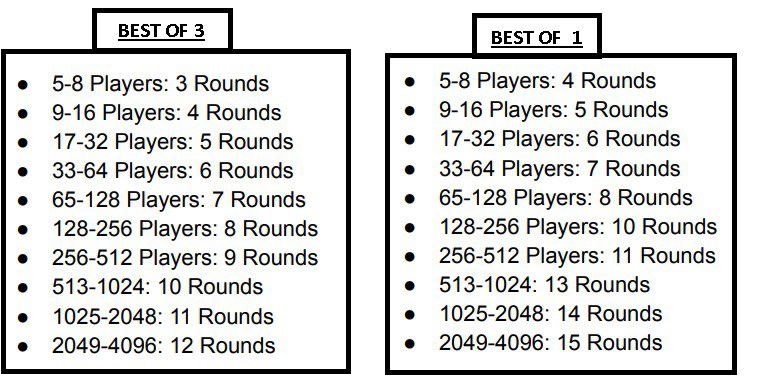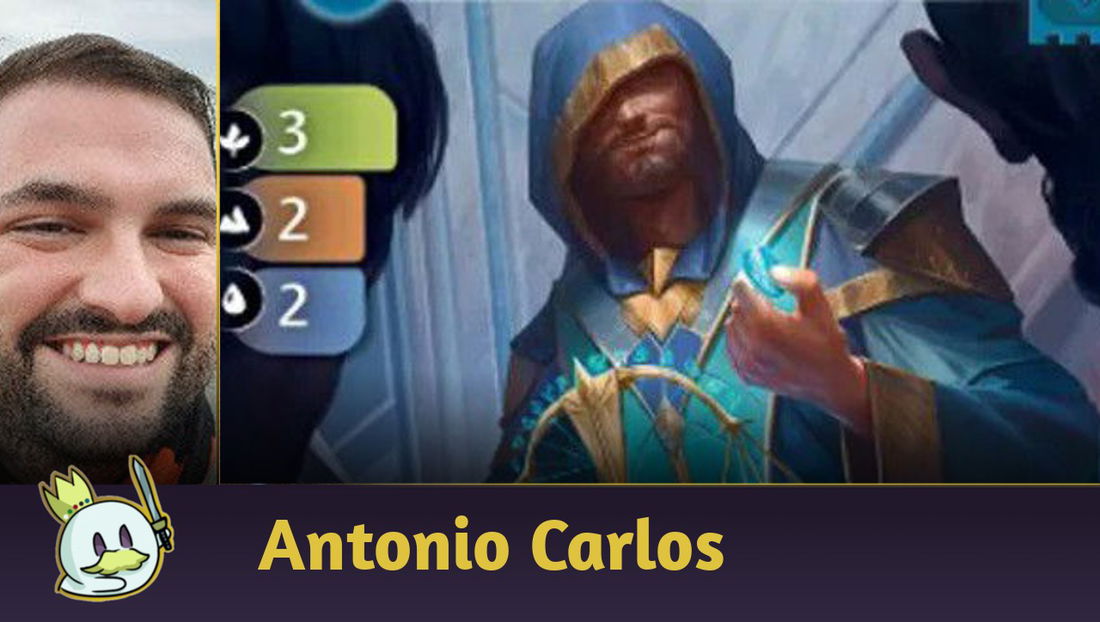The Tournament Guidelines are here!
Hello, everyone!
We have some new stuff to talk about from this past week, while we wait for the famous Pax Unplugged to take place this weekend (December 6-8) in the USA.
The expectation is that some spoilers for the next Altered set, "Trial By Frost", will be shown at the event, and probably some other surprises. We'll also have some pretty big tournaments, so stay tuned for a metagame analysis in the near future!
Meanwhile, Equinox has officially published its Altered Tournament Guidelines!
Similar to other card games, in Altered we will have the Comprehensive Rules, where the "technical" part of the game is explained - how to play cards, what are the win conditions, interactions between cards, etc. -, and the Tournament Rules, where logistical part of events are explained - number of rounds, time, role of each participant, etc.
It's very important to know and familiarize ourselves with this document, since it will be the basis for tournaments of this new TCG, that is now well on its third official month since launch!
Below, we will analyze some of the document's focal points, especially when they innovate in relation to other existing TCGs:
The Basis for "Altered Organized Play"
Link and download for the complete document in PDF
As you can see right away, the word “Competitive” is not used once in the initial presentation of the document - the focus is on healthy gaming environments and positive experiences foreveryone participating. It is made clear what the priorities of the designers/developers are, and a well deserved praise for Equinox, showing that they understand well what the game needs to grow and establish itself in the current "TCG market”.
Roles and Responsibilities of Players
Apart from the standard expected behaviour in any type of game/competition - treating everyone with respect and politeness, communicating clearly, being punctual, etc., we also have some interesting things to highlight:
In terms of communication and keeping the game state clear, there is a note about the importance of keeping everything organized not only for opponents, but also for spectators and game officials. This is an important recognition of the "spectator" role, which are embraced as a part of the gaming experience;
When talking about out-of-game objects/materials (tokens, markers, etc.), it is explicitly stated that Players are welcome to use any unofficial game materials. Players should always confirm the game materials they plan to use with their opponents before the start of the round. There will only be an “obligation” to use official tournament materials produced by Equinox if there is disagreement between players regarding the use of unofficial materials.
Roles and Responsibilities of Judges and Organizers
Although there is not yet a “Judge Program” for Altered TCG, Equinox left an entire section highlighting the importance that these officials have for the game - praised as more than “people doing a job”, the document refers to the judges as real representatives of the game, and therefore must be aligned with the ideals of the Altered TCG.
There's also a point about the close relationship between tournament organizers and judges, since the document states that it is also the organizer's duty/responsibility to deal with misconduct by players - which undoubtedly demonstrates Equinox's firm concern in maintaining its environments healthy and safe for new players to thrive.
Who gets to be "First Player"
Something that may not have been clear in the Comprehensive Rules, but that Equinox made a point of highlighting in the Tournament Guide, is the definition of which player will take the first action in the game.
In Altered, unlike some other TCGs, players will use some random method to define who will be the first to play, not who will choose to be first. In other words, given any random method - coin toss, even/odd, etc. - the winner will be “First Player”, period.
If the event is in a “Best of 3” format, the random choice will be used only for the first game of the match - after each game, the losing player will choose, in the next game, who will be the “First Player”.
End of Round Procedures
An important matter when thinking about tournament logistics is the time allocated for each round, and how to proceed when the time is up and there are still games happening. The Tournament Guideline aims to standardize this, through the following procedure:
When time is up, the current turn, or “day” of the game, will continue normally until it ends. If there is no winner after the end of this “day”, an additional day is played, and if at the end of this new “day” there is no winner, whoever has fewer regions between the hero and companion expeditions will be declared winner. If the draw persists, the Arena's tiebreaker criteria is used - the player with the most advantage in the majority region types is declared winner. If there is still no winner, then the result of the game is considered a draw - phew!
Score and number of Rounds
The Tournament Guideline suggests a scoring system that's pretty standard for other TCGs, where a win awards 3 points, draws award 1 point, and losses 0 points.
The recommended round system is the Swiss, which means players/teams in each round will ideally face players/teams that have the same score and have not played each other before - in a simplified way, “winners versus winners / losers versus losers.”
The document recognizes that each match in a tournament can be “Best of 1” or “Best of 3”, although it is highlighted that it is strongly recommended that Team events not be “Best of 3”.
The number of rounds for a “Best of 3” event follows the recommended standard for the Swiss format, while in “Best of 1” events “Modified Swiss” is recommended, which is basically adding 1 round to the “Best of 3” number - except if the event exceeds 128 participants, which could then add 2 or 3 extra rounds, as you can see on the following table:

Infractions
In the document, Equinox took care to establish how to deal with gaming infractions and what possible penalties could be assigned to participants.
First of all, it is important to highlight that the intention of whoever committed the infraction is to be understood - that is, whether it was with the intention of obtaining an undue advantage, or whether it was in fact an accidental error. The document leaves it to the Tournament Official's discretion whether or not some infractions should be upgraded - also recommending that every upgrade be accompanied by a small prior investigation into the incident.
Applying Infractions
Dissecting this part a little further, FIVE possible infractions were established for the participants, presented from the “lightest” to the “heaviest”. It is interesting to point out an innovation from Equinox, with the application of the infraction called “Penalty”, something more severe than a “Warning” but milder than a “Game Loss”.
IMPORTANT: Most of the scenarios and examples shown on the Guidelines are somewhat vague, and not all infractions were fleshed out, which means there is a somewhat interpretation effort needed. This means some of the rulings and understandings could certainly change in the future.
“Reminder” - this is the mildest penalty, used mainly when a player forgets some mandatory action and a small “backup” is needed to correct the game state;
”Warning” - more severe than Reminder, Warnings must be used in game situations that can no longer be reversed with backup, either due to too much time having passed or the backup could further damage the game state;
”Penalty” - this is a somewhat innovative infraction for those who already have experience in other TCGs. It should be applied in situations involving unsportsmanlike conduct and inappropriate behavior in general. Upon receiving this infraction, the player loses 1 point from their tournament results so far, which means it doesn't affect a game in progress, but affects the players' total score in the event. For example, if you are playing 3rd Round and you had 2 wins, therefore 6 points in the tournament, and during the round you receive a “Penalty”, you now have 5 points.
”Game Loss” - this infraction implies that the ongoing game is now finished and the offender receives a loss. The document implies that it should only be applied in very serious offenses, such as lying to opponents or tournament officials, or behavior/conduct that is beyond inappropriate.
“Disqualification” - the most severe infraction, which means the player is removed/ejected from the event/tournament. Applicable only by the Head Judge responsible for the event, and used in cases of theft, intentional breach of rules/cheating, or violent/abusive conduct.
It is also worth noting that milder infractions (Reminder, Warning and Penalty) also receive an “upgrade” suggestion, which is from the third equal infraction onwards. In other words, the third time someone would receive a “Reminder”, a “Warning” should be applied instead. And the third time someone would receive a “Warning”, a “Penalty” should be applied instead.
Conclusion
The Tournament Guideline is an important document as it supports various procedures and seeks to standardize the execution of events, in order to minimize regional differences and thus increase integration between different communities/countries within the game.
However, it is clear that it is a document in constant development, especially regarding infractions, which for the moment should suffice for general in-store small tournaments, but, as in all TCGs, has to follow the increasing complexity and challenges that come with the release of more sets.
So, although it will certainly not be a “final” or “definitive” form of the Altered tournament rules, it will work as its' been named - a "Guideline", that is, to assist and guide people on a journey/adventure. A name quite appropriate to the flavor of the game, in fact.
And you, what did you think of the innovations in the Altered Tournament Guideline? What would you do differently than what Equinox proposed? Share with us!
Hugs and see you next time!













— 评论 0
, 反应 1
成为第一个发表评论的人